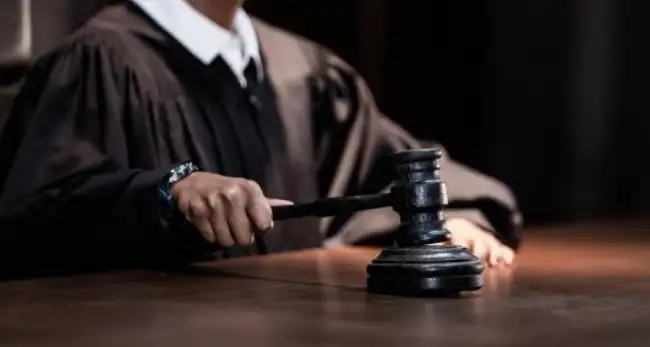The criminal chamber of the Ariana court of first instance made, late on the night of Thursday to Friday, her judgment in the so -called “dark chamber” case of the Ministry of the Interior.
She sentenced eight accused, including former senior security officials, to eight years in prison each, with immediate execution of the sentences for three of them currently on the run, said a judicial source to the TAP agency.
Yassine Ben Marzouk, first substitute for the public prosecutor and court spokesperson, said on Friday morning at the TAP agency that the charges retained relate to: “Dispute, destruction, concealment or alteration of convictions, criminal procedure documents, registers, or objects stored in public deposits or entrusted to public authority agents. »»
The eight condemned people are: Atef Omrani, Boubaker Laabidi, Mohamed Friji, Kais Bessifi, Sami Waz, as well as three others on the run: Mustapha Khedher, Abdelaziz Daghssni and Ridha Barouni. Among them are former security executives, including a former director of the anti -terrorist wrestling unit and a former director of specialized services.
The investigation into the “dark chamber” had been opened by the first investigating judge of the Ariana court, after the discovery of a large number of documents hidden in a closed office of the Ministry of the Interior.
The “Defense Committee of the two martyrs Chokri Belaïd and Mohamed Brahmi” presented documents involving a certain Mustapha Khedher, saying that he had links with the Ennahdha movement and carried out intelligence activities.
According to this committee, part of these documents, found in December 2013 at Khedher’s home (already sentenced to eight years in prison), are still preserved in what they called the ministry’s “dark chamber”. The committee requires the opening of this part and access to the documents it contains.
He insisted on the need for the Ministry of the Interior to lift confidentiality on the documents of this Chamber, bound according to him to the assassinations of Belaïd and Brahmi, and to stop the protection of the “clandestine device” involved in these assassinations.








